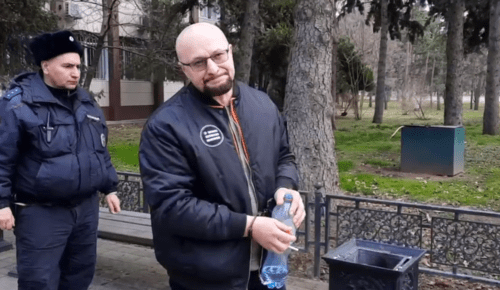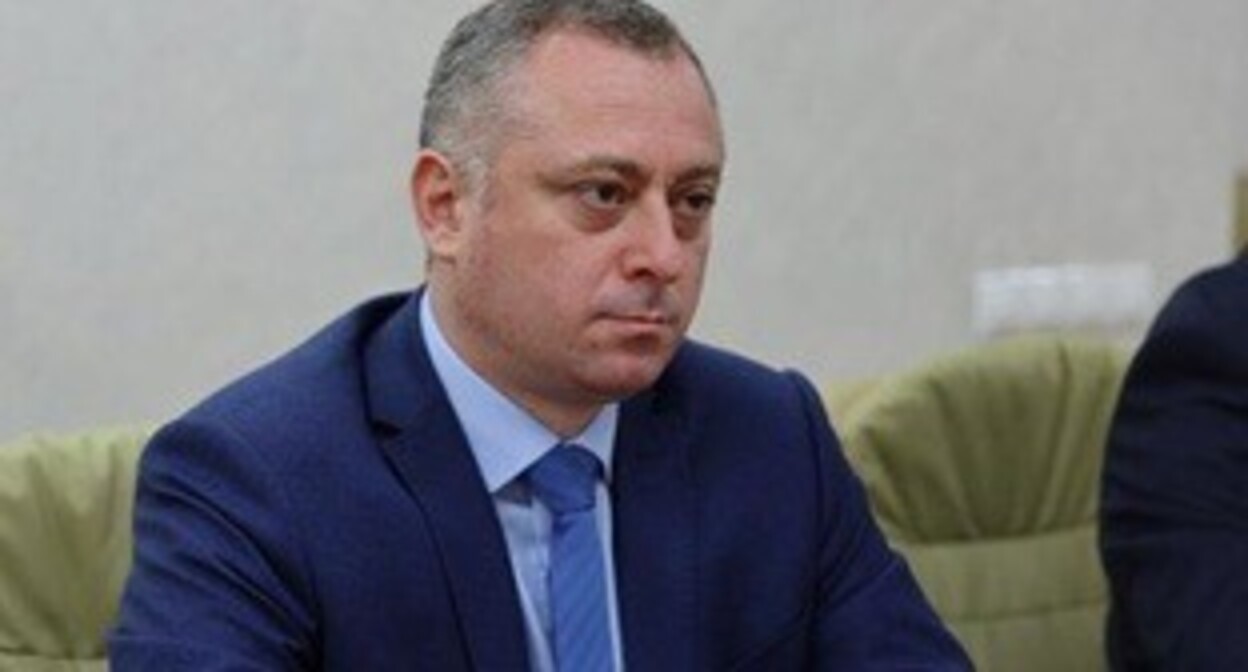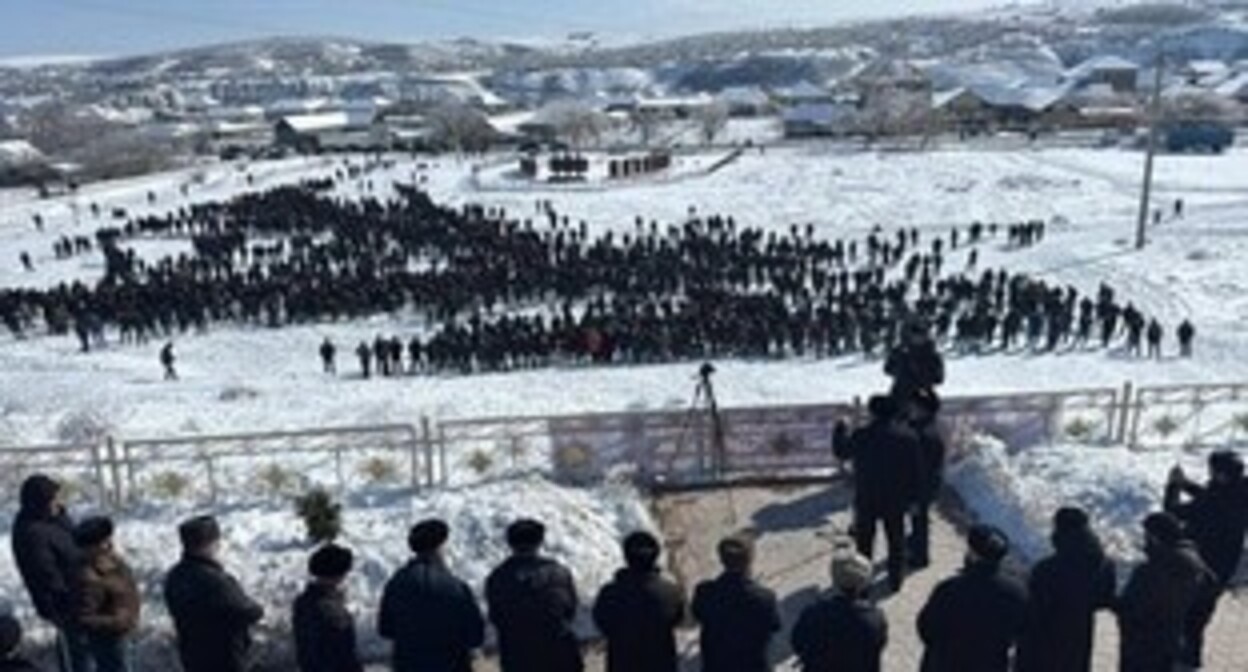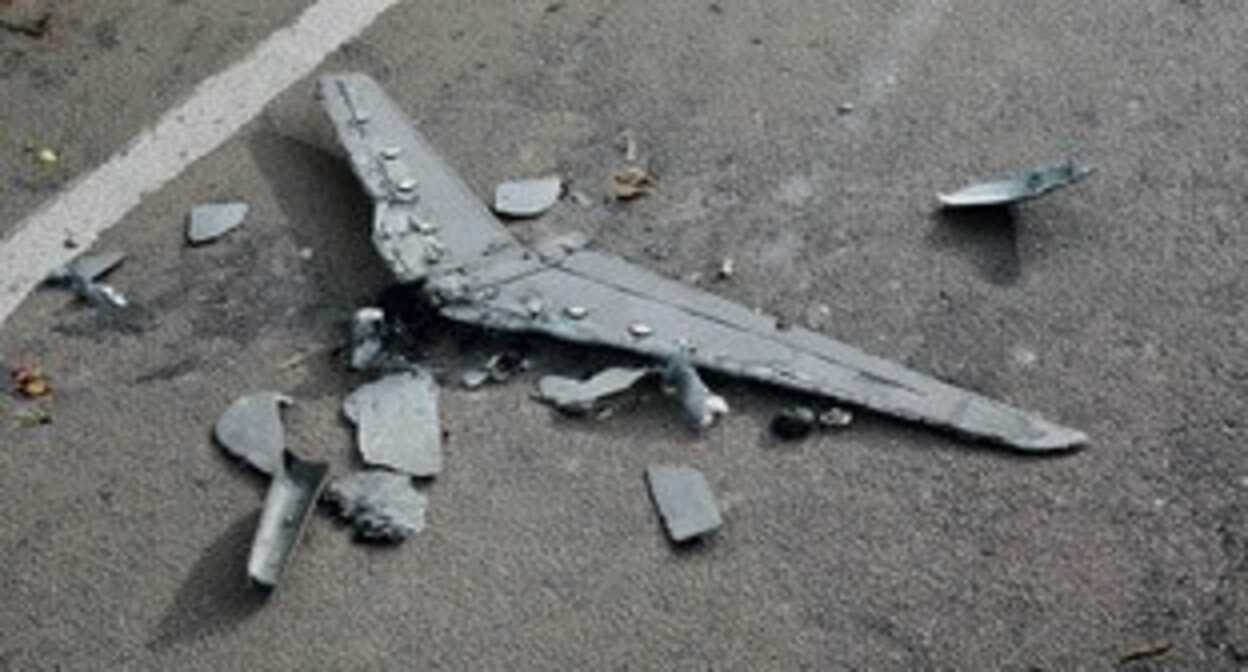Week in the Caucasus: review of main events of March 11-17, 2024
Presidential election voting in the Caucasus, persecution of pacifists and activists in Southern Russia, repressions in Azerbaijan continue, new drone attacks, and official data on the natives of Southern Russia who perished in Ukraine, – see the review of these and other events in the Caucasus during the week of March 11-17, 2024, prepared by the “Caucasian Knot”.
Presidential election voting in the Caucasus
On March 15-17, 2024, Russian citizens were electing a president for the next six years. Three candidates from different parties and self-nominated Vladimir Putin took ran for presidency. The campaign took place without even the appearance of any rivalry. The ruling party is not officially participating in the presidential election, and two candidates who called for peace were not allowed to participate in the election. Some candidates who were unable to collect sufficient number of signatures refused to participate in favour of the incumbent president. In fact, the action had no alternative. The voting also took place in Azerbaijan, Armenia, Georgia, South Ossetia, and Abkhazia.
Election commissions reported more than 85% for Vladimir Putin in Southern Russia amid complaints of irregularities. The Russian President received the greatest support in Chechnya, where, based on the results of processing 2.69% of ballots, he received 99.28% of the votes. The second place in the republic went to Leonid Slutsky from the Liberal-Democratic Party of the Russian Federation (LDPR) with 0.47% of the votes, and the third place went to Nikolai Kharitonov from the Communist Party of the Russian Federation (CPRF), who gained 0.28%.
In the Southern Federal District (SFD), based on the results of processing the first ballots, the largest number of votes for Vladimir Putin – 91.39% – was reported in the Rostov Region.
During the third day of voting in the Southern Federal District (SFD), complaints were recorded about ballot stuffing, violation of voting secrecy, and an attack on an observer. According to the “Violations Map” project, 142 violations were reported. In the North-Caucasian Federal District (NCFD), voters complained about being forced to vote and violation of campaign rules.
Ruslan Khubaev, an independent voting member of an election commission, and observer Dmitry Korolyov were detained at a polling station in Krasnodar after they complained about ballot stuffing. On March 17, the court arrested Ruslan Khubaev for 14 days on the charges of hooliganism and distribution of prohibited symbols.
The Armenian police stopped attempts by activists to unfold posters in a line to vote at the Russian Embassy and also confiscated some posters, reported one of the coordinators of the Yerevan protest action scheduled for the day of voting in the Russian presidential election. Human rights defender Arthur Sakunts called the actions of the police unacceptable.
Russian citizens held a protest action in Tbilisi, timed to coincide with voting in the Russian presidential election, and opposed the permanence of power in their homeland.
Persecution of pacifists and activists in Southern Russia
Within two days, the Shpakovsky District Court of the Stavropol Territory imposed six administrative fines on local resident Vitaly Fedorenko under the article on discrediting the Russian Armed Forces.
The Donetsk City Court of the Rostov Region imposed a fine of 50,000 roubles on Vladislav Kovalyov because of the posts in his Telegram channel, which were recognized as discrediting the Russian Army. According to the court’s ruling, Vladislav Kovalyov is “an administrator of the Telegram channel with posted photos and videos of an anti-Russian orientation, as well as comments aimed at discrediting the Armed Forces of the Russian Federation.”
Tamerlan Ivanov, a resident of Nalchik, who was found guilty of discrediting the Russian Armed Forces with a pacifist inscription on his backpack, challenged the fine at the Supreme Court (SC) of Kabardino-Balkaria. The defence pointed out the absence of an administrative offense in the actions of Tamerlan Ivanov. The filed appeal stated that the court did not examine the evidence, namely the piece of paper with the pacifist inscription, attached, according to the court’s ruling, to the Tamerlan Ivanov’s backpack. No photographs of the above pacifist inscription were attached to the police materials, the advocate noted.
The Supreme Court (SC) of Kabardino-Balkaria dismissed the advocate’s arguments. Regarding the Latin letters “Z” and “V,” the judge has explained that they “are applied to the military vehicles and equipment of the Armed Forces of the Russian Federation and are associated with them, which is publicly known and should not be proven.” The Supreme Court (SC) of Kabardino-Balkaria has upheld the fine imposed on Tamerlan Ivanov.
Repressions in Azerbaijan continue
On March 14, in Baku, a court extended by three months the pre-trial detention of Ulvi Gasanli and Sevindj Vagifgyzy, the director and the editor-in-chief of the “Abzas Media” online publication, respectively. The New York-based Committee to Protect Journalists (CPJ) has called on the authorities of Azerbaijan to release all unjustly imprisoned journalists.
The Court of Appeal in Baku left in custody five defendants in the case against the “Toplum TV” and refused to recognize violations of the law during the search of the former rented apartment of Farid Ismailov, another defendant in the case, who remained at large under the police supervision.
Investigators added charges of extortion by prior conspiracy in the case against Teimur Kerimov, the head of the “Kanal-11” Azerbaijani media project, which could lead to tougher punishment, an advocate notes.
On March 12, Aidyn Aliev, a brother-in-law of Alesker Mamedli, the arrested “Toplum TV” founder, was dismissed from his position as a doctor at the “Istanbul” clinic in Baku. Aidyn Aliev, who is also the deputy chair of the public Association of Doctors of Azerbaijan, associates the dismissal with his public statement about the unlawful arrest of Alesker Mamedli.
New drone attacks
On March 17, Slavyansk-on-Kuban was attacked by about 20 drones arriving from Ukraine, local residents reported on social networks. They complained of being alarmed after a massive drone attack. At the same time, according to Vasily Golubev, Governor of the Rostov Region, an unmanned aerial vehicle (UAV) was shot down over the Rostov Region.
On March 13, electronic warfare systems destroyed three drones on approach to the city of Novoshakhtinsk. The downed drones fell on the territory of the Novoshakhtinsky oil refinery.
Official data on natives of Southern Russia perished in Ukraine
By March 17, the authorities and the law enforcement bodies reported about at least 3573 residents of Southern Russia perished in Ukraine, including 1751 residents of the North-Caucasian Federal District (NCFD) and 1822 residents of the Southern Federal District (SFD).
In Dagestan, the authorities reported about 781 local residents perished in Ukraine, in the Volgograd Region – 698, in the Rostov Region – 399, in the Krasnodar Territory – 338, in Stavropol Territory – 303, in the Astrakhan Region – 276, in North Ossetia – 263, in Chechnya – 175, in Kabardino-Balkaria – 129, in Kalmykia – 61, in Ingushetia – 52, in Adygea – 50, and in Karachay-Cherkessia – 48.
This article was originally published on the Russian page of 24/7 Internet agency ‘Caucasian Knot’ on March 18, 2024 at 09:15 am MSK. To access the full text of the article, click here.








![Tumso Abdurakhmanov. Screenshot from video posted by Abu-Saddam Shishani [LIVE] http://www.youtube.com/watch?v=mIR3s7AB0Uw Tumso Abdurakhmanov. Screenshot from video posted by Abu-Saddam Shishani [LIVE] http://www.youtube.com/watch?v=mIR3s7AB0Uw](/system/uploads/article_image/image/0001/18460/main_image_Tumso.jpg)